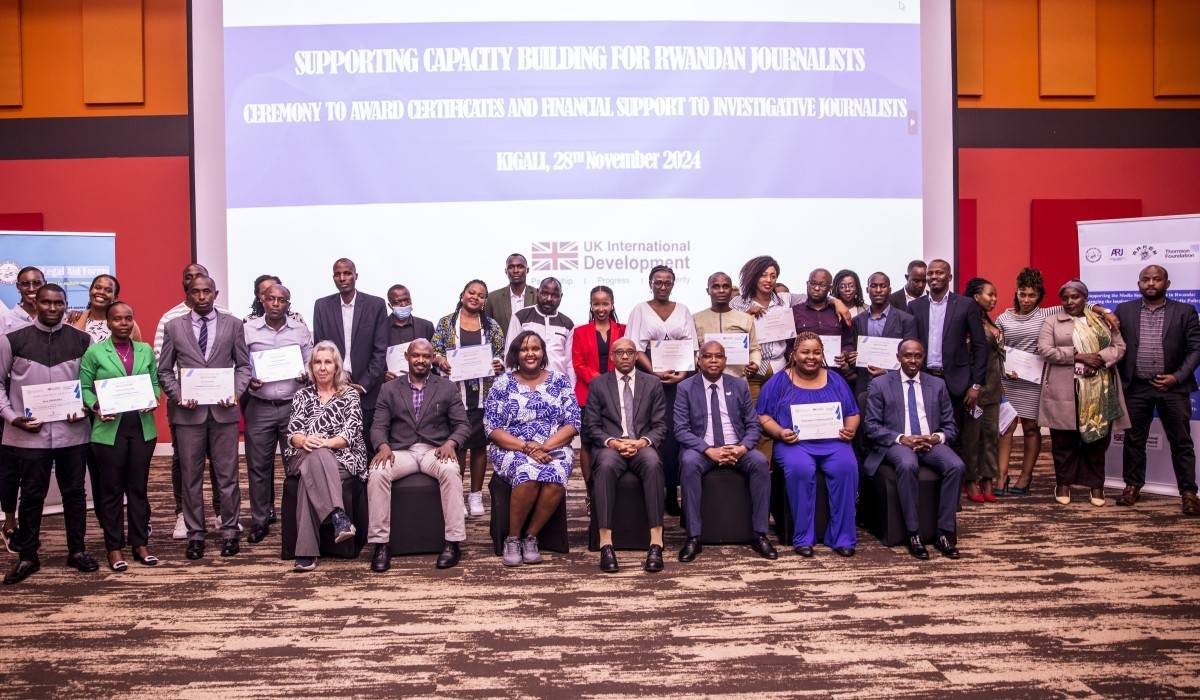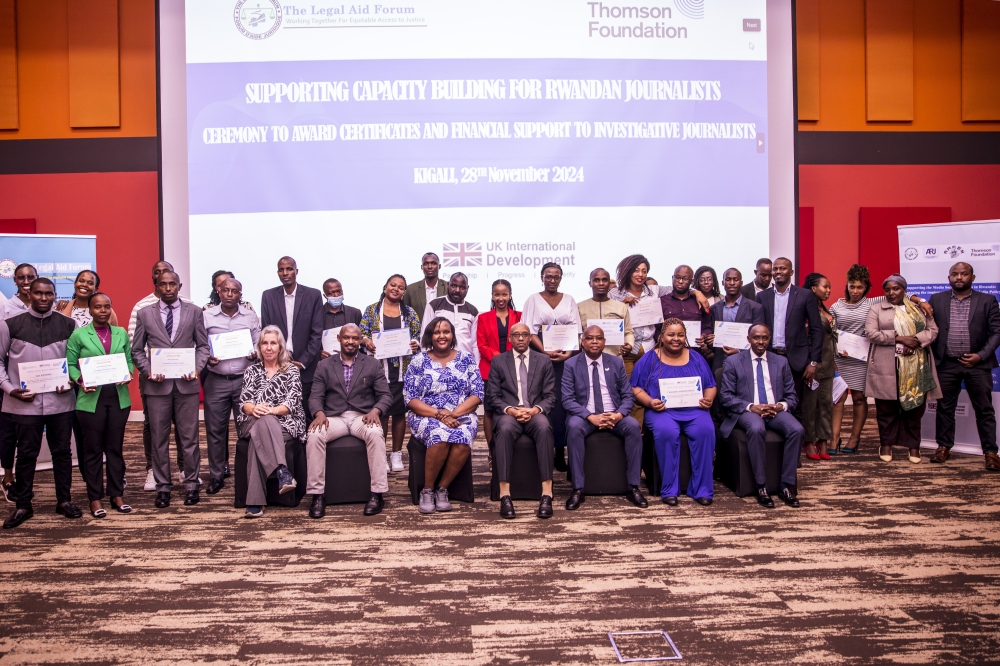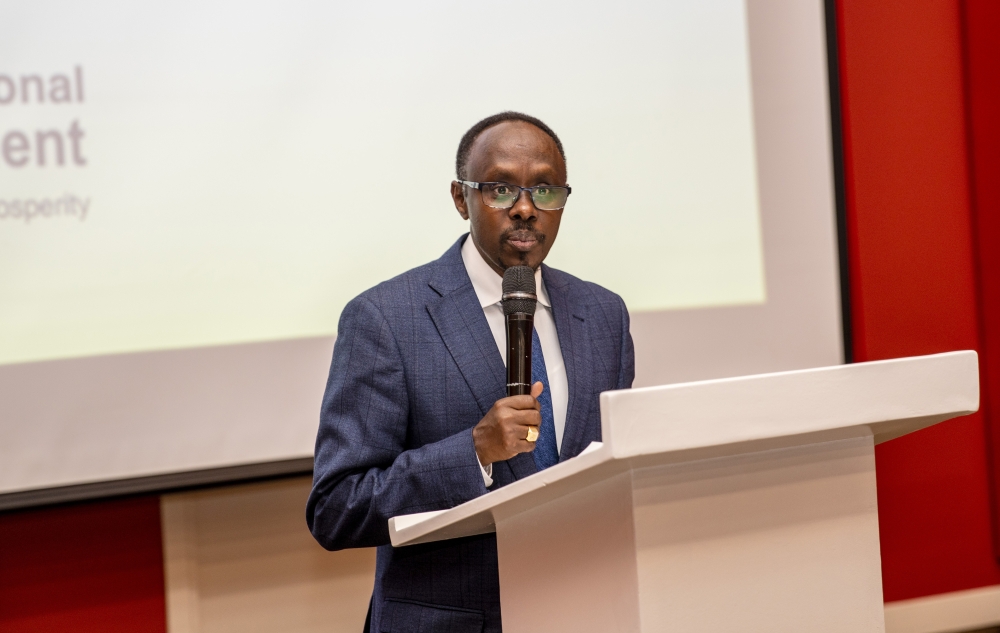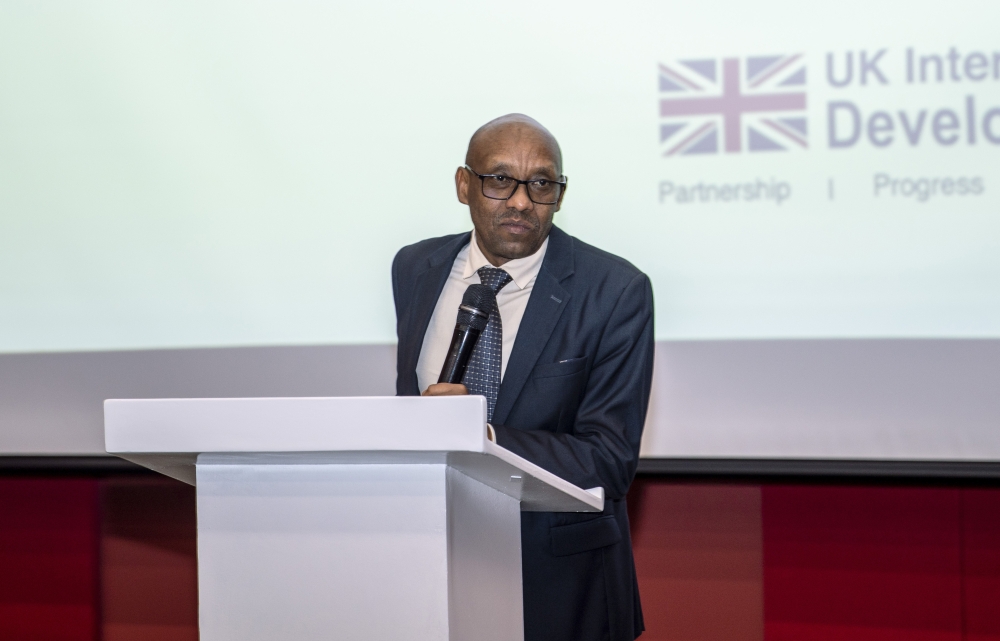
14 journalists receive grants to advance investigative journalism

The Legal Aid Forum (LAF), in partnership with the Thomson Foundation (TF), recognized 14 journalists with production grants, on November 28 for completing a training program to enhance their investigative journalism skills.
This initiative, designed to support Rwanda's media sector, prioritized capacity building for journalists as a key objective, is part of the project implemented by The Legal Aid Forum (LAF), in partnership with Thomson Foundation (TF), the Rwanda Journalists Association and the Rwanda Female Journalists Association with the support of the Foreign Commonwealth and Development Office (FCDO).
To incentivize quality reporting, the top five participants were awarded Rwf2.25 million each, while the remaining trainees received Rwf940,000 as production grants. These funds aim to reduce financial barriers and enable the creation of high-quality investigative reports.
ALSO READ: Financial constraints hindering Rwanda's media growth
Andrews Kananga, the Executive Director of Legal Aid Forum (LAF), noted that there is still a persistent gap in investigative journalism. He noted that many investigative stories lack proper knowledge and depth.
"News stories go far and help inform society, but when they are not done with knowledge, they can create problems," he added.
Kananga said that LAF and partners have undertaken initiatives to address this issue.
"We sought out journalists and provided them with the capacity to produce investigative stories. We offered financial support because we want investigative journalism to become a standard practice," he said.
He emphasised the importance of thorough investigation in journalism to prevent the spread of false information, which can have far-reaching negative consequences.

Kananga added, "Investigative news plays a critical role in governance, protecting people's rights, and fostering development. It helps uncover what others cannot and provides society with accurate and essential information," he added.
ALSO READ: Inside Rwanda's new proposed media policy
Jean Bosco Rushingwabigwi, the Head of the Media Sector Coordination Monitoring Department at Rwanda Governance Board (RGB), emphasised the importance of training journalists to enhance their skills and contribute to the country's development.
He explained that unresolved issues hinder progress, making investigative journalism a critical tool for identifying and addressing problems.
"These trainings are meant to help journalists look beyond surface issues. They should be equipped to uncover problems, explain them clearly, and highlight solutions," he said.
Rushingwabigwi stressed that journalists must have the capacity to reach stories that remain hidden or unreported.
In addition to the training, he added, "Our goal is to combine efforts and create a journalism training institution to build the capacity of journalists and improve the quality of their work," he added.

Simon Kamuzinzi, a journalist from Kigali Today and one of the top five trainees, shared his insights on the lessons he learned about investigative journalism. He explained the importance of going beyond surface-level reporting.
ALSO READ: Investigative reporting lacking – report
He emphasised that investigative journalism requires a focus on the "why" behind a story. This helps to uncover the truth behind the news.
Kamuzinzi also acknowledged the resources provided during the training. "The support we received will be crucial for the investigative stories we plan to work on because such stories require both energy and financial investment," he said.
Immaculee Mukazayire, another trainee said that, in the past, they avoided working on investigative stories due to a lack of proper training and understanding of how to align such stories with Rwanda's context.
"Investigative stories often seem too complex and risky for Rwanda's context, and the lack of funds or company support has slowed progress in this area," she said.
However, the recent training has renewed their confidence and ability to pursue investigative journalism.
"After these training sessions, we are ready to do investigative stories. We have strong story ideas, and we pitched them. Experts helped us refine these ideas and adapt them to our context. Now, with the support we've received, we can finally bring these stories to life," Mukazayire said.

Source: Newtimes
Our Partners

















